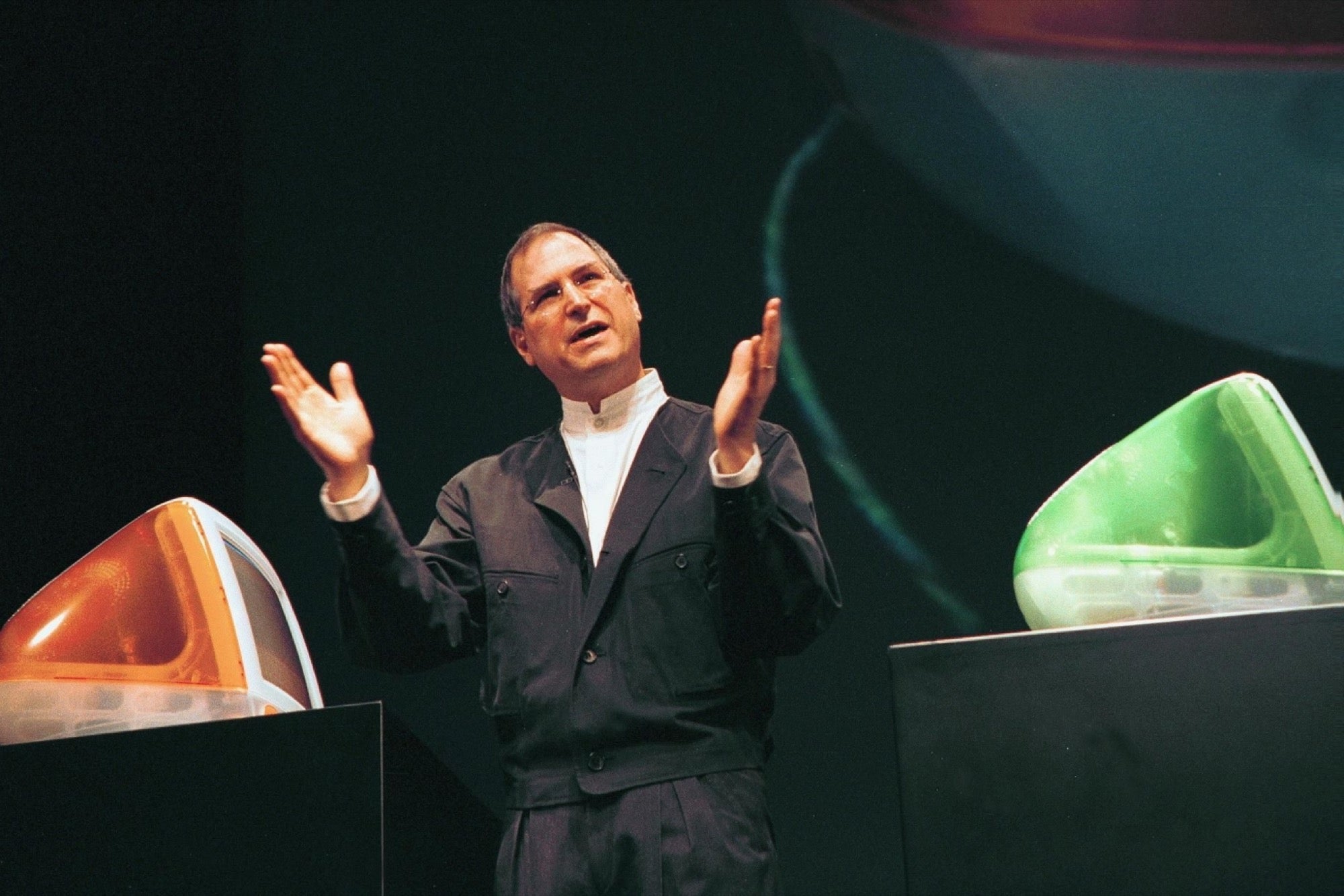The 5 Greatest Lessons I Learned Working With Steve Jobs During the Apple Turnaround If you're ever given the opportunity to help turn an ailing company around, don't listen to the naysayers. Stick around -- and learn.
By William Hall •

Opinions expressed by Entrepreneur contributors are their own.

Working at Apple between the early 1990s through the early 2000s was an exceptionally exciting time, filled with unusually high opportunity for anyone choosing to work toward turning around one of the best companies in the world. During the early part of that period, Apple was on its way to becoming history.
Related: 6 Reasons Why Steve Jobs Was Truly One of a Kind
As most know, Steve Jobs's fateful return changed the course of the company's history for the better.
I was one of the crazy ones who passionately believed in the company and thus stayed with the company even as it was heading toward its end. During the first tech boom, telling people I worked at Apple would result in, "Why do you work there?" or, "You should work for Yahoo" or, "Sun Microsystems is the place to work." Those nuggets of wisdom got old at times.
But I was ready for the naysayers. My usual reply: "I'm doing more than most people will do in a lifetime" or, "Because Apple is going to turn around and I'm helping work on this."
In fact, I was lucky to work with Jobs, Avie Tavanian, Jon Rubenstein and other executives. I didn't leave Apple because I was learning as much as I could there about entrepreneurship and how to fix a great company. It was the best education anyone could ask for.
After working with Jobs for a few years, I can confidently list the clear lessons I learned that can be applied to entrepreneurship in general as well as to starting and growing a company. Here are the five greatest lessons I learned working with Steve Jobs during the Apple turnaround:
Marketing is critical.
Most people may not believe this: Apple back then didn't do much marketing. It was a relatively silent company and most people didn't know about its products. But once Jobs took over, he quickly transformed the company into a marketing machine. I remember him saying, "How can we sell a product if nobody knows about it?" The lesson I took away was: You can make the best mouse trap in the world, but if you don't tell anyone, no one will buy it.
Care deeply about everything, but rely on others to create excellence.
It's pretty well known that Jobs cared just as much about the insides of a machine as its outside appearance. I remember sitting in an iMac meeting where he was able to talk to Fred Anderson about corporate finance and immediately switch his focus to questioning the placement of Asic chips on the motherboard because it was too thick and ugly.
The lesson I took away was: Be very well versed and care deeply about everything, but rely on exceptionally smart people to create excellence.
Look past the resume and scores when hiring.
Jobs looked way past the resumes or scores of people he hired. He looked at accomplishments, personality and interests. Apple was filled with employees who didn't have scholastic pedigrees, high scores or name-brand MBAs. In most cases, top MBAs floundered in the company and quickly left.
Related: 5 Tips for Turnarounds That Unleash Your Company's Unmet Potential
Jobs hired exceptionally smart people who had many talents that created very well-rounded, exceptionally creative and remarkable problem-solvers. My take-away from this style of hiring: Don't hire just on scholastic accomplishments or high scores. Hire the person you can easily work with, who has many talents and has interesting talents outside work.
Trust your instincts.
The trend toward AI, machine learning and analytics has made me a little uneasy. This is a little ironic considering that I run a company that creates business simulations for Fortune 500 companies. But one of the greatest lessons I learned from Jobs was to look at situations and trust my instincts, interpretation and recommendation.
I can still remember as clear as day the first time Jobs asked me, "What do you think?" about a certain challenge we were having with Mac OS X. I replied with my honest assessment and recommendations, with which he was okay (phew!). I can also remember his frustration when people provided analytical solutions after they were asked, "What do you think?"
Jobs believed very strongly in smart people's "gut" instinct. My takeaway from this: Become comfortable with listening and acting on your instincts.
Go big, be bold, take risks.
Steve Jobs was, in my opinion, the absolute master at boldness and risks. Jobs had the ability to go big, be bold and take risks. After his return to Apple, he bet the entire company on one product: the iMac. The entire company's future relied on this one product. He went big, went bold and took the risk. The rest is history. My obvious lesson from this: Be willing to go big, go bold and take a risk.
I chose to leave Apple in 2003 in order apply these lessons on turning a company around and finally open my own company. I have been able to apply what I learned to my own entrepreneurial adventures many times over.
Related: How Steve Jobs Saved Apple
I miss the turn-around days at Apple and still miss the smart people (most of whom have also since left) I was fortunate enough to work with. So, here's the takeaway for you: If you're ever given the opportunity to help turn a company around, take it: You may not find a better education.











